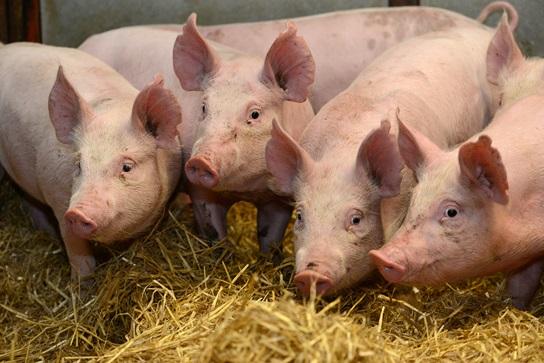Roslin heralds gene-edited pigs resistant to major deadly disease
Roslin researchers have welcomed news that a research group in the United States using gene-editing techniques have developed the first pigs resistant to a devastating disease.

A team from the University of Missouri, in collaboration with global agricultural biotechnology company Genus plc, have successfully bred pigs that are resistant to Porcine Reproductive and Respiratory Syndrome (PRRS), which is a serious infectious disease of pigs.
The results provide proof-of-principle for ongoing research at The Roslin Institute that uses a similar approach to generate pigs that are resistant to PRRS and other infectious diseases. This research is part of a research collaboration with Genus plc to improve the wellbeing of livestock using genetic techniques.
The US researchers used a technique called CRISPR-Cas9 to develop pigs that lack a protein called CD163, which is required for the PRRS virus to infect the pigs' cells and cause disease.
Their recent results indicate that the gene-edited animals are resistant to infection from the virus. They do not get ill and have no signs of virus in their bodies.
This marks the first time scientists have produced animals that are resistant to an infectious disease using gene-editing techniques.
A limited number of animals, consistent with a proof of concept experiment, were tested for a standard high virulence challenge strain of the virus. Researchers say the results indicate the exciting potential of gene-editing technology.
It is expected tobe at least five years until PRRS-resistant animals are available to farmers.
Although the research is still at an early stage, this paper points to what can be achieved using the new genome editing technology and could be a game changer for the pig industry. It has the potential to benefit the entire pork food chain from the farmer through to the consumer.
Gene-editing is an advanced technique that involves modifying individual letters of an animal's genetic code. It is different from traditional GM techniques because no new genetic information is inserted into the DNA.
Porcine reproductive and respiratory syndrome virus causes reproductive failure in breeding stocks of pigs and can also cause respiratory tract illness in young pigs. There is no cure or adequate treatment.
The disease costs the United States swine industry around $644 million annually, and recent figures estimate that it costs the European industry almost €1.5b every year.


